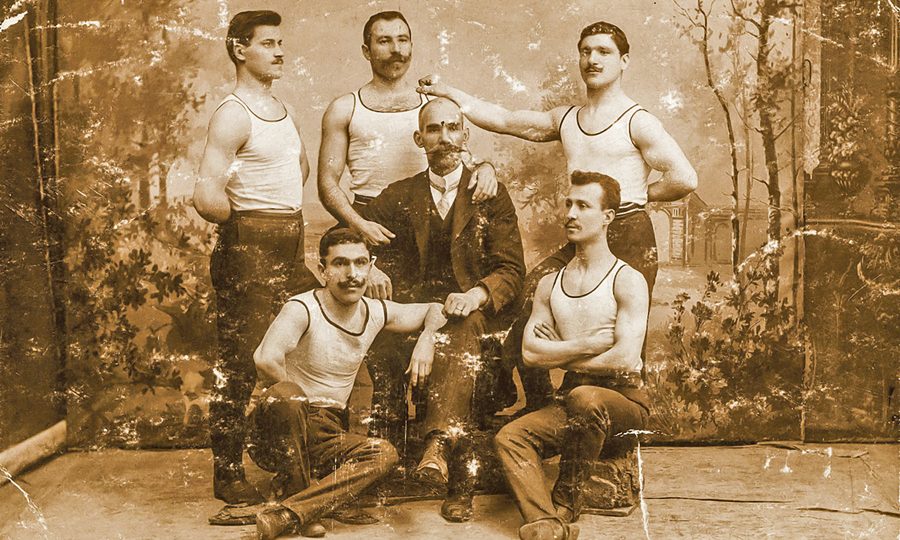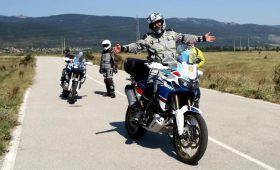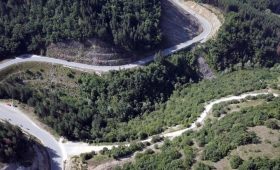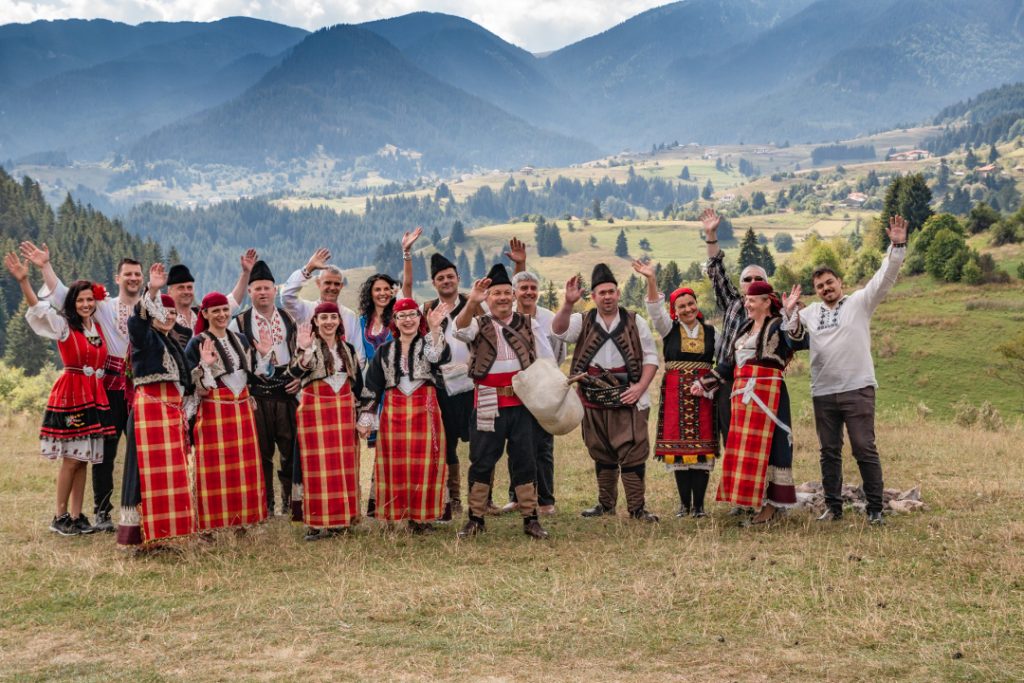Part 5 of 5.
Bulgaria, with its long and turbulent history, has left indelible marks in the Soul of every foreigner who dares to get to know it more closely, especially if it was in direct contact with its long-suffering people – the Bulgarians, bearers of extremely rich spirituality and culture.
In this sequence of posts we will talk about five of the most famous ones.
5. Louis-Emil Eyer – The Swiss who founded the sports movement in Bulgaria and regarded the protection of his second homeland as his duty and enlisted in the Bulgarian Army as a volunteer.
Louis-Emil Eyer (28 October 1865–2 September 1916) was a Swiss-Bulgarian sports pedagogue and public figure regarded as the founder of the sports movement in Bulgaria.
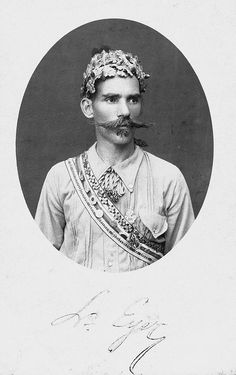
Born in Bex in the Canton of Vaud, Eyer studied in Lausanne, Geneva and Neuchâtel and taught sport disciplines in Vevey. In 1894, Eyer and nine other Swiss pedagogues, including Georges de Regibus and Charles Champaud, were invited to Bulgaria by the Minister of Education Georgi Zhivkov to lay the foundations of sports education in the country. Eyer taught physical education in Lom (1894), Silistra (1903) and Rousse (1909) and was the main coach of the Yunak sports associations around the country. He introduced the sports of track-and-field, boxing, weightlifting, wrestling to Bulgarian physical education.
When the Balkan Wars broke out, Eyer, despite being a foreign citizen, regarded the protection of his second homeland as his duty and enlisted in the Bulgarian Army as a volunteer. He was a commander of a company of the Macedonian-Adrianopolitan Volunteer Corps’ 12th Lozengrad Battalion. For his valour, he was twice awarded a Cross for Honour and was promoted to the rank of Second Lieutenant. Following Bulgaria’s defeat in the Second Balkan War, he published the French-language book Pro Bulgaria (“For Bulgaria”) in 1913, defending the Bulgarian position.
After Bulgaria joined World War I, Eyer again enlisted as a volunteer as an officer in the 38th Infantry Regiment. He died on 2 September 1916 during the Battle of Doiran, and was buried in the village of Čaušli, today in the Republic of Macedonia.
But who was Louis-Emil Eyer?
He worked in a foundry and was a passionate gymnast. This was at a time in Switzerland when gymnastics enjoyed its golden age – to such an extent that even foreign governments took note. This is why the Kingdom of Bulgaria asked Switzerland to support the emergence of this newly independent state by sending gym teachers. Ten emissaries from the German-speaking and French-speaking regions of Switzerland, including Eyer, thus ventured to Bulgaria in 1894 by train – taking with them boxing gloves, sabres, specialist books and leather balls for the emerging sport that had been invented in England.
Marching in circles
Sport back then was first and foremost a way of strengthening your body and developing a fighting spirit. Eyer, too, allowed plenty of scope for military-type exercises: disciplined marching, in rows, in columns, in circles. But, at the same time, his old passions rubbed off on his new homeland, so much so that the gymnastics association in the Danube town of Lom had a stone putter on its banner.
The two-year contract of the Swiss gymnasts came to an end. But Eyer stayed. Tireless, he had young people working up a sweat all across the country. He helped set up a nationwide youth gymnastics association. In Varna, in 1900, he organised the first “Fête Fédéral” based on the Swiss model. In short, he was the catalyst behind mass gymnastic movements. And he repeatedly took up arms for his adopted country.
There is no doubt that Eyer was not in favour of gentle education. He faced the youngsters with a willow rod. His penchant for discipline brought him additional respect. And he survived every re-write of the history books. He was praised by the royalists because he brought the country closer to Western values. He was later acclaimed by the socialists because he was the genuine, early internationalist who educated honest workers’ and farmers’ sons. And the democratic Bulgaria of the post-transformation period also considers the Swiss man a sound historical figure too. Coming from the self-ruling gymnast nation in the Alps he was the ideal role model.
Back “home”
In principle, this portrayal could end here. But the migration story feeds into a remigration story. Bulgaria did provide Eyer’s widow Pauline with an ample pension, but there was a lack of prospects for those left behind. “The Swiss with a Bulgarian heart” – so read the title of a Bulgarian film – was dead, and his descendants had very close links with Switzerland. Marcel in particular, Eyer’s son who had grown up in Bulgaria, really wanted to move home. In 1920, four years after the death of the decorated officer and revered sports educator, he departed for “his country” beside his mother. A country he did not know. A country that was not waiting for him.
Then 18 years old, he thought the most difficult thing for him would be choosing the best of all the options that would be open for him in Switzerland. Yet, while the story of his gymnast father Louis-Emil is representative of the wave of emigration in the 19th century, the story of his son Marcel illustrates the reserved attitude of the Swiss people towards Swiss living abroad. Although he spoke French perfectly, he was simply not considered Swiss on his return. The begging letters of the young man dreaming of an education, sent to the Cantonal Council in Vaud, came to nothing. Based on the understanding of the authorities at that time, there was no reason to extend him a hand into everyday Swiss life. The son of the hero, who still had the smell of freshly polished officer boots in his nostrils, slipped back into the dusty factory environment that his father had escaped from in his time. Essentially a refugee, he lived on the premises of a run-down cigar factory in Vevey. For years he remained trapped between his own self-perception (son of a Swiss hero) and the perception of others (economic migrant from Bulgaria). In his humble factory home he set up a shrine to his own story – a polished home-made museum with an oil painting of the hero, the officer’s sabre of the fallen man, and the medals. This was his “proof” of just how much the Swiss were ignoring the “real story”.
The children of this unfortunate man, namely the grandchildren of the hero, increasingly found the weight of this story to be a burden and source of lasting disaffection. Marcel Eyer’s son, Louis Kosta, recalls: “The way my father worshipped my grandfather was rather alarming. Even my father only really knew him from a distance.” This is because Bulgaria’s senior gymnast was always on the move. His mission drove him on. For his family, he was always absent.
The grandchildren eventually wrote a small additional chapter about emancipation from an “overbearance of history”: they handed over all the memorabilia to the Bulgarian state. Louis Kosta Eyer says: “Louis-Emil’s ‘big’ story began in Bulgaria. And it ended in Bulgaria.” All that remains is the realisation that it does no good to take credit yourself for your forefathers’ achievements: “I read the story of Louis-Emil like I read the stories of other historical figures in books: with interest, but in the knowledge that it is his story, not mine. Everyone is responsible for their own story.” Looking back though, the grandson does permit himself one positive thought: “Today in Europe we are seeing a rise in nationalism. Today, people are increasingly viewing the world from their own national perspectives. Louis-Emil reminds us at least of a Europe that was more open and penetrable than it is today.”
Source: Swiss Review – The magazine for the Swiss Abroad

